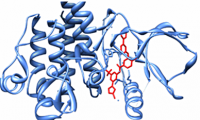-
U.S. pressing India to avoid capping medical device prices, allow withdrawals
- Source: reuters
- 436
- October 19, 2017
-
New findings explain how UV rays trigger skin cancer
- Source: Medicalxpress
- 568
- October 19, 2017
-
Can an Asthma Drug Help Treat Parkinson’s Disease?
- Source: medicalnewsbulletin
- 620
- October 18, 2017
-
Neurotech International bags $4M to commercialise autism device
- Source: proactiveinvestors
- 668
- October 18, 2017
-
A Significant Global Problem
- Source: medicalnewsbulletin
- 517
- October 18, 2017
-
Ebola vaccines from GSK, Merck elicit yearlong response, study finds
- Source: Fiercepharma
- 802
- October 16, 2017
-
NIH accelerates the development of new cancer immunotherapy strategies for more patients
- Source: nih.gov
- 551
- October 16, 2017
your submission has already been received.
OK
Subscribe
Please enter a valid Email address!
Submit
The most relevant industry news & insight will be sent to you every two weeks.













